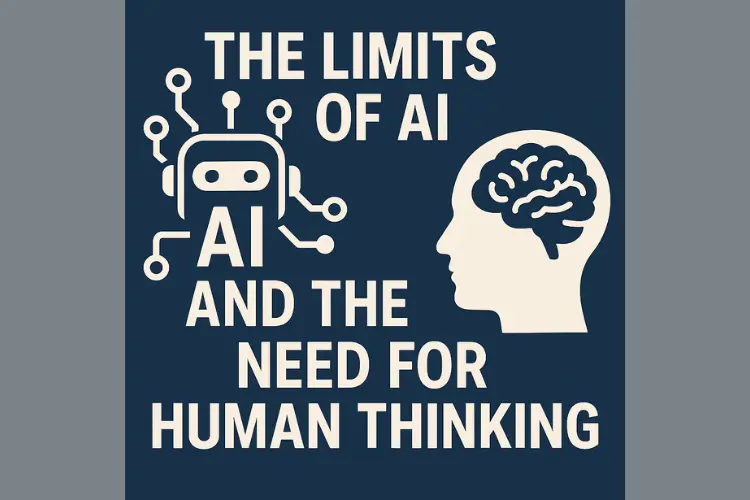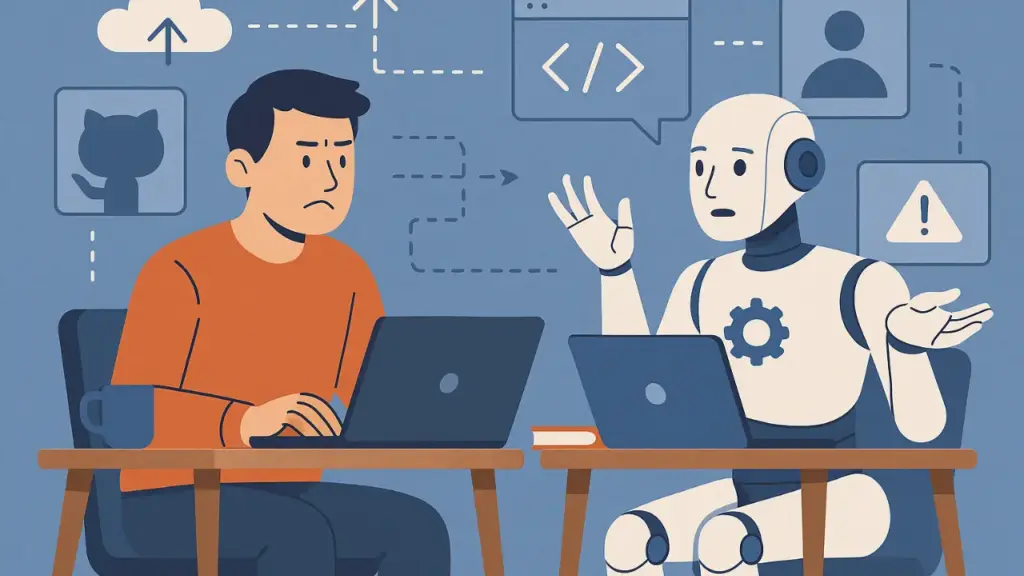Introduction
The rise of AI has sparked countless debates. One question keeps coming up: will AI replace software developers?
The short answer? No.
Despite the power of AI tools like GitHub Copilot, industry leaders agree that human developers remain essential. In fact, the need for skilled coders is growing.
This blog dives into expert opinions from GitHub and Okta CEOs. It also looks at real-world examples showing why AI still can’t handle the complexity of modern software development. If you’re a developer or aspiring to be one, this article explains why your job is safe—and more important than ever.
GitHub CEO Thomas Dohmke’s Warning
Thomas Dohmke leads GitHub, the platform at the center of modern coding. His company developed Copilot, an advanced AI coding assistant. Yet, he remains firm: we still need to teach coding.
Dohmke compares skipping code education to abandoning math after calculators arrived. Both are tools. And tools only help those who understand the concepts behind them.
“Coding should be taught like literacy, math, and history,” he says. Why? Because AI can help write code, but it can’t think through logic, ethics, or impact.
He warns that if we rely blindly on AI, we risk losing control. Developers must understand what the AI does to ensure the results are secure, ethical, and reliable.
In his view, coding is not just a skill. It’s a critical layer of digital literacy.
The Human Role in AI-Powered Coding
AI can now write full functions, suggest bug fixes, and even optimize code. But there are limits.
Someone still has to:
- Review the code
- Test it
- Confirm it aligns with company policies
- Ensure it meets security and compliance standards
AI lacks context. It doesn’t understand user needs, business goals, or legal frameworks. Only humans can provide that oversight.
This means the role of developers is evolving—not disappearing. Developers must now guide AI, not compete with it.
Think of AI as a power tool. It makes you faster, but you still need to know what you’re building.
Okta CEO Todd McKinnon’s Perspective
Todd McKinnon, CEO of identity platform Okta, agrees. In an interview with Business Insider, he called the idea of fewer future developers “laughable.”
Why? Because history tells a different story.
Every major tech shift—from the creation of compilers to the mobile revolution—led to more developer jobs, not fewer. When tools improve, companies don’t shrink teams. They dream bigger.
McKinnon expects even more hiring at companies like Okta, Microsoft, Meta, and Salesforce.
“Better tools lead to more productivity. That means more ambitious products. Not fewer engineers,” he explained.
In short: the more AI helps us code, the more projects we build. Demand for developers grows.
Better Tools Don’t Eliminate Jobs—They Scale Innovation
Let’s look at history. When word processors arrived, writers didn’t vanish. They just wrote more.
The same goes for developers. Tools like Copilot increase output. Companies use this boost to tackle more complex problems.
Businesses now want:
- Faster development cycles
- More personalized apps
- Continuous updates and improvements
This demand requires more hands, not fewer.
AI handles repetitive work. Developers focus on innovation. The result? A productive partnership, not a replacement.
Real-World Failures of Advanced AI Systems
Let’s step away from theory and look at real life. Despite AI breakthroughs, problems persist.
Take YouTube. Even with Google’s AI leadership, creators battle constant bot spam. Comments sections flood with fake promotions.
Meta has the same issue. Instagram and Facebook inboxes are full of scam messages. Billions invested in AI haven’t solved this.
A recent study from Notre Dame University proved how easy it is to game these systems. Researchers with only high school education created bots that passed platform security.
They deployed these bots on Reddit, X, and Facebook. All eight platforms failed to block them effectively.
The study concluded that “none of the platforms are providing sufficient protection.”
If AI can’t stop spam or scams, how can it manage software complexity? It can’t. That’s the reality.
The Limits of AI and the Need for Human Thinking
AI is pattern-based. It learns from data. But software development involves critical thinking, creativity, and judgment.
Consider this:
- AI can’t question requirements.
- It can’t foresee ethical issues.
- It can’t adapt to unexpected user behavior.
These are all areas where human developers excel.
Also, AI is vulnerable to adversarial attacks. Creative hackers can trick it. Developers must think like attackers to build secure systems. AI doesn’t think that way.
Security, user experience, and ethical design need human insight. AI is a tool, not a strategist.

Conclusion: Developers Are Here to Stay
AI is transforming software development. But it’s not replacing developers. It’s making them more powerful.
From GitHub to Okta, tech leaders agree: the future belongs to those who understand code. AI writes faster, but humans write smarter.
We still need developers to:
- Guide AI
- Ensure quality
- Maintain ethical standards
Real-world failures remind us that AI is far from perfect. The spam bots on social media are just the tip of the iceberg.
The developer role is not going away. It’s evolving.
At StartupHakk, we believe in empowering the next generation of developers. Whether you’re coding your first line or leading a dev team, your skills matter more than ever.
Stay sharp. Stay human. And keep building the future.




